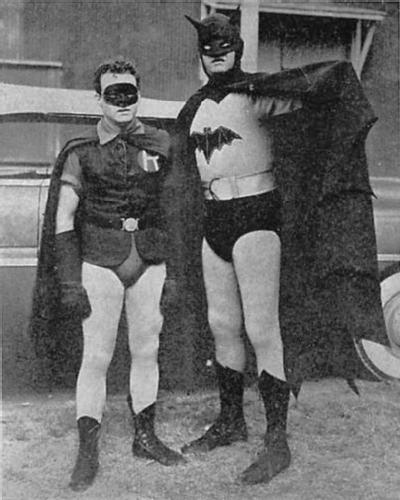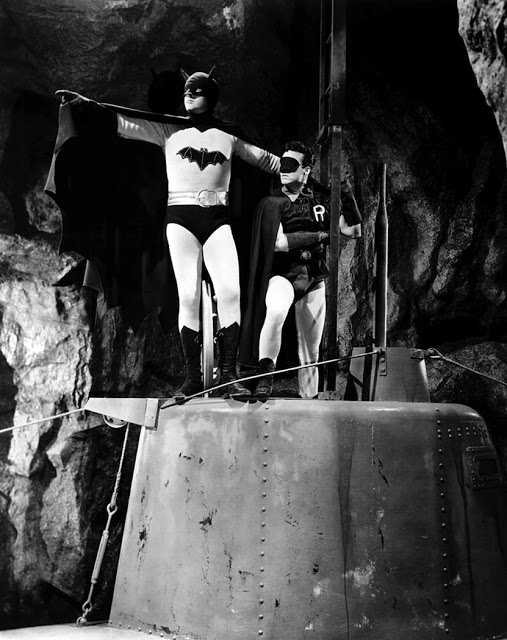Batman is a 15-chapter serial, released in 1943 by Columbia Pictures. It is based on the DC Comics character Batman, introduced May 1939 in Detective Comics issue 27. The serial starredLewis Wilson as Batman and Douglas Croft as Robin. J. Carrol Naish played the villain, an original character named Dr. Daka. Rounding out the cast were Shirley Patterson as Linda Page (Bruce Wayne’s love interest) and William Austin as Alfred the butler. The plot involved Batman—as a U.S. government agent—attempting to defeat the Japanese agent Dr. Daka at the height ofWorld War II.
The film is notable for being the first filmed appearance of Batman, and for debuting story details that became permanent parts of the Batman mythos. It introduced the Bat’s Cave and its secret entrance through a grandfather clock inside Wayne Manor. Both departures subsequently appeared in the comics. The serial also changed the course of how Alfred Pennyworth’s physical appearance would be depicted in later Batman works. At the time it was released in theaters, Alfred was overweight in Batman comics. After William Austin’s portrayal in this chapter play, subsequent issues of the comics portrayed him as Austin had: trim and sporting a thin mustache.
Press releases announced it as a “Super Serial” and it was Columbia’s largest-scale serial production to date. The studio gave it publicity campaign equivalent to a feature film.
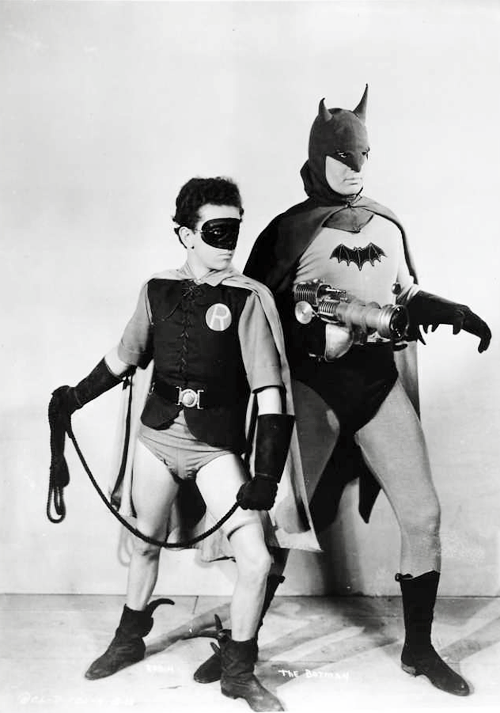
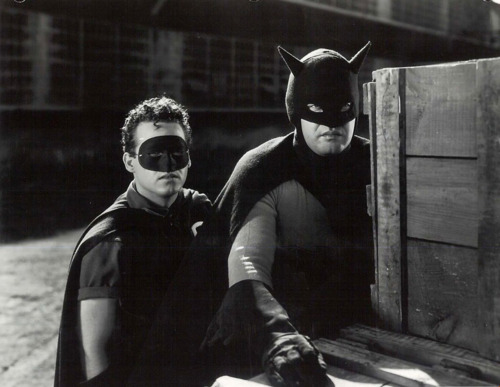
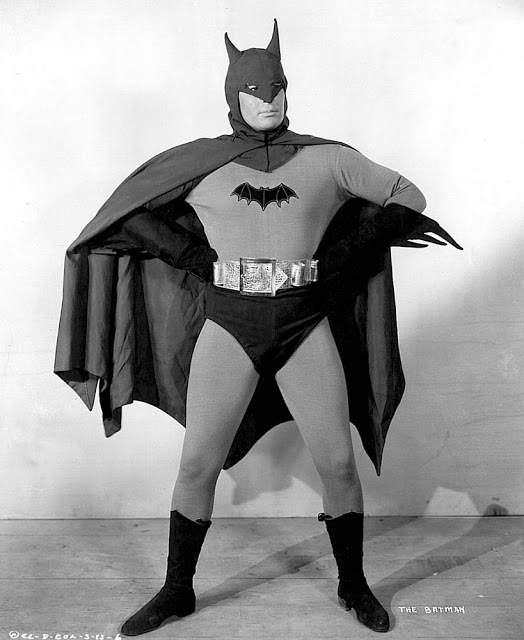
The film was made at the height of World War II and, like numerous works of popular American fiction of the time, contains anti-German and, in this case, anti-Japanese ethnic slurs and comments (in one scene, one of Daka’s henchmen turns on him, saying, “That’s the kind of answer that fits the color of your skin.”). Early narration in the first chapter (minute 9:20-9:30), referencing the U.S. government policy of Japanese American internment to explain the abandoned neighborhood of Daka’s headquarters, sets the racial tone for the serial: “This was part of a foreign land, transplanted bodily to America and known as little Tokyo. Since a wise government rounded up the shifty-eyed Japs, it has become virtually a ghost street.”
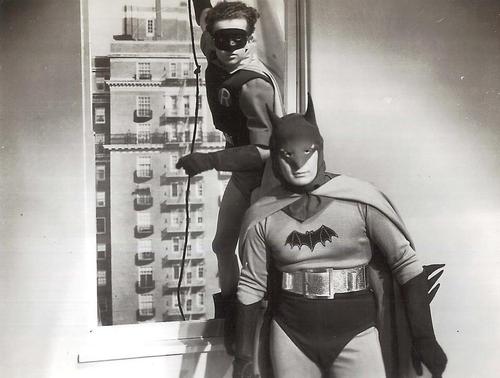
The film also suffered from a low budget, just like many other contemporary serials. No attempt was made to create a bona fide Batmobile, so a black Cadillac was used by Bruce Wayne and Dick Grayson as well as Batman and Robin. Alfred chauffeured the Dynamic Duo in both identities.
While many serials made changes during adaptation, to the extent that they were “often ‘improved’ almost out of recognition,” Batman “fared better than most” and the changes were minor. A normal limousine replaced the Batmobile, the utility belts are present but unused, and Batman is a secret government agent in this serial instead of an independent vigilante. This last change was due to the film censors, who would not allow the hero to be seen taking the law into his own hands.
Several continuity errors occur in the serial, such as Batman losing his cape in a fight but wearing it again after the film only briefly cut away.
